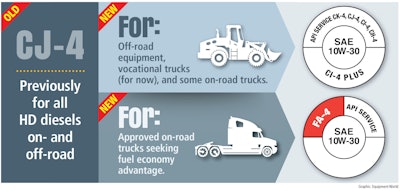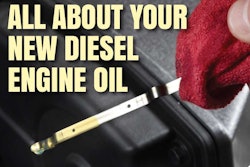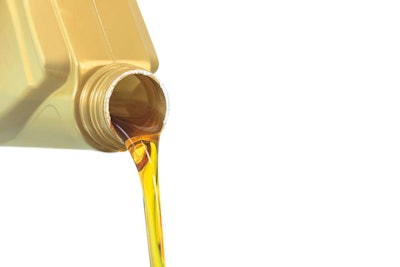
For the last 10 years, all of you have been using a type of lube oil that is classified as CJ-4 by the American Petroleum Institute. If you look closely at the jugs or barrels of oil you’ve bought in the past they have a circular API logo on them (often called the “donut”) with the viscosity rating in the center of the circle and the CJ-4 designation printed on the perimeter of the circle. (See illustrations.)
Out with the old
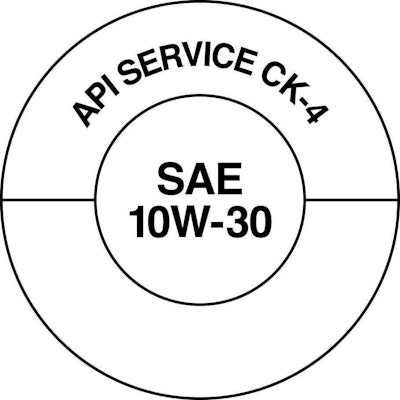
But after 10 years, the engine manufacturers began asking for additional improvements in two areas of lube oil performance. First: They wanted more engine protection for their low-emissions engines and extended oil drain intervals. Second: For newer on-highway engines manufacturers wanted the same protections but lower viscosity formulas that could increase fuel economy.
The oil industry responded by developing two different oil standards, its first “split category.” Until this year contractors put the same oil in their dozers and backhoes as the guy running 18-wheelers put in his trucks. The only difference might have been in viscosity. But as of late 2016, the industry started formulating two types of heavy-duty diesel engine lube oils: CK-4 and FA-4. Here is the difference:
CK-4 is for use in all off-road diesel equipment and older models of heavy-duty trucks. It is backwards compatible with all your older equipment and trucks. Anything you’ve put CJ-4 oil in will do fine with CK-4 oil. The only difference is the CK-4 oil will protect your engine better and may enable you extend drain intervals past what you had been doing with CJ-4.
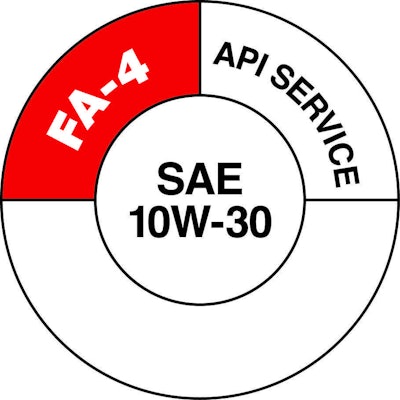
Practical matters
The old CJ-4 oils will soon start to disappear from the oil companies’ inventories, and eventually be completely replaced by CK-4 and FA-4, which started hitting the market in December 2016. So, you will see the new formulations coming your way soon, if you haven’t already.
Since these new oils offer performance enhancements you might want to take this opportunity to conduct some extended oil drain interval tests with the new oils to see if you can get more miles or hours out of the new formulas. And if you’re already doing regular oil sampling make sure your lab knows about the change.
